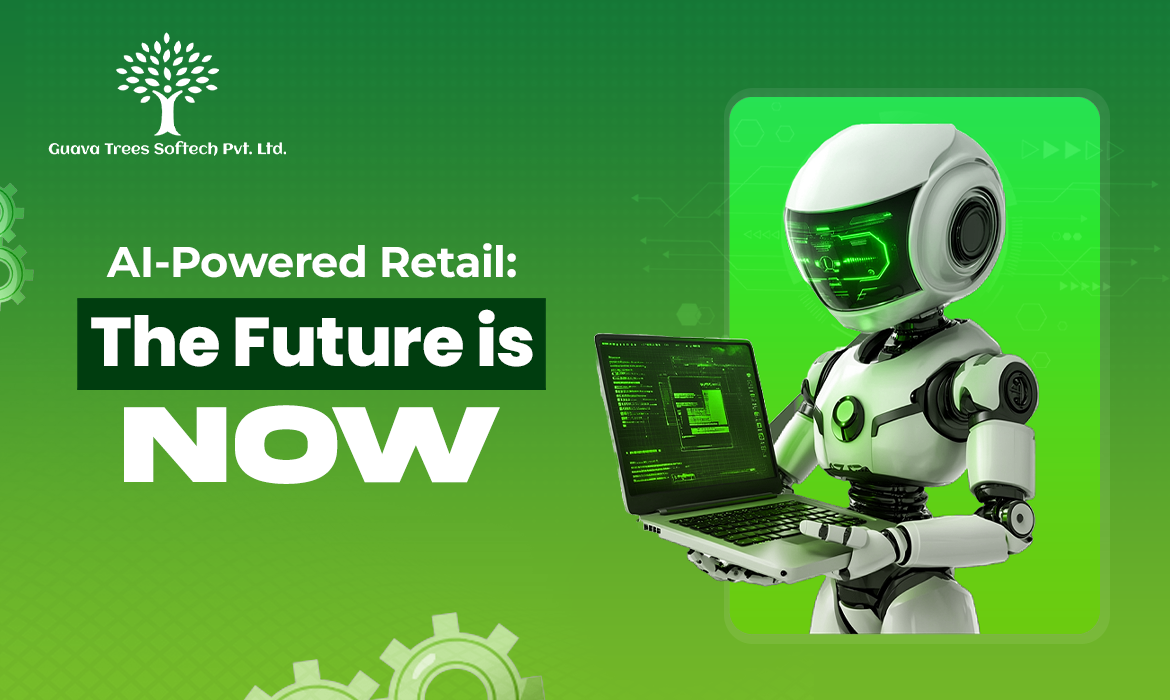Have you noticed how the most successful retailers today don’t just sell products, they deliver hyper-personalized, ultra-efficient experiences built on data?
In 2025, Artificial Intelligence (AI) integration is no longer a futuristic concept; it is the fundamental capability driving competitive advantage in the retail landscape. AI is the engine that shifts software solutions from being simple transaction tools to predictive, intelligent decision-making systems.
But what exactly does AI integration mean for your business? And how can you adopt the right strategies to maximize its impact without stumbling over common pitfalls?
Let’s break it down!
What Is AI Integration, Really?
AI integration involves seamlessly embedding machine learning (ML) models, Natural Language Processing (NLP), and computer vision technologies directly into core retail software platforms, such as e-commerce engines, POS systems, and Enterprise Resource Planning (ERP). This is a strategic shift designed to automate complexity, generate real-time insights, and enable precision across all functions, from product discovery to last-mile delivery. It means upgrading your retail DNA from reactive to predictive, a core service offered by Guava Trees.
Market Insight
The momentum behind this transformation is staggering. The global Artificial Intelligence in Retail market, estimated at approximately $11.61 billion in 2024, is projected to soar to over $40 billion by 2030, reflecting a Compound Annual Growth Rate (CAGR) exceeding 23.0%. This growth is fueled by the need for enhanced operational efficiency and, critically, the consumer
demand for personalized, omnichannel shopping journeys. North America currently leads this market in investment, but the fastest growth is anticipated in the Asia-Pacific region, highlighting a truly global race to AI-driven retail excellence that Guava Trees is prepared to support.
Two Pillars of AI Transformation
AI’s impact in retail primarily focuses on two intertwined business functions: transforming the customer journey and optimizing back-of-house operations.
Transforming the Customer Journey (CX)
AI-powered software solutions are fundamentally redefining how consumers interact with brands, driving conversion rates and brand loyalty.
- Hyper-Personalization and Recommendations: This is the most visible application. AI modelsanalyze purchasing history, real-time browsing behavior, and demographic data to serve up highly tailored product suggestions, dynamic website layouts, and segmented email campaigns. Tools embedded in e-commerce platforms ensure that every customer sees a storefront curated just for them, driving higher average order values (AOV).
- ConversationalCommerce: Chatbots and virtual assistants, fueled by advanced NLP and Generative AI, now provide immediate, human-like support 24/7. These solutions handle everything from order tracking and FAQs to complex product recommendations, significantly lowering service costs while ensuring instant customer gratification.
- Visual Search and Augmented Reality (AR): Integrating computer vision capabilities into mobile apps and websites allows shoppers to upload a photo of an item they like and instantly find similar products in stock. Furthermore, virtual try-on solutions use AR to let customers visualize products—from makeup to furniture—in their own environment before purchasing, drastically reducing return rates.
Optimizing Back-of-House Operations
AI drives maximum profitability by adding layers of intelligence to complex logistical and inventory tasks that traditional software struggles with.
- Predictive Demand Forecasting: Moving beyond simple historical averages, Machine Learningmodels analyze hundreds of variables—including seasonal trends, local events, social media sentiment, and weather patterns—to predict demand with unprecedented accuracy. This leads to optimal stock levels, minimizes waste, and ensures products are on shelves or in the warehouse precisely when needed.
- DynamicPricing Optimization: AI solutions monitor competitor pricing, inventory levels, and real-time demand elasticity to automatically adjust product prices. This ensures the retailer maximizes profitability on every single item, whether through personalized discounts to spur immediate purchase or price increases during peak demand.
- SupplyChain and Logistics: AI optimizes complex delivery routes, monitors potential supply chain disruptions in real-time, and recommends resource reallocation. This accelerates delivery times, reduces fuel consumption, and builds resilience against unforeseen market events.
Navigating the Integration Hurdles
Adopting an AI-first strategy, like the solutions Guava Trees provides, is not without its challenges. To succeed, businesses must address three critical hurdles during the integration phase.
- Data Quality and Governance: AI models are only as good as the data they consume. Poor, inconsistent, or siloed data is the single biggest impediment to successful AI deployment. Retailers must invest in robust data governance frameworks to ensure data across all channels (online, in-store, supply chain) is clean, labeled, and unified.
- Integration with Legacy Systems: Many large retailers rely on complex, outdated legacy systems that are difficult to connect with modern, cloud-native AI platforms. The solution, which Guava Trees often implements, is an incremental approach, utilizing robustAPIs and a flexible, hybrid cloud architecture to act as a bridge, allowing AI tools to run externally while communicating smoothly with existing infrastructure.
- Talent and Mindset Gap: Integrating AI requires specialized skills in data science, MLOps, and model training. Retail organizations must either invest heavily in upskilling existing staff or partner with specialized software consultancies like Guava Trees to accessthe necessary Critically, leadership must foster a culture that views AI as an augmentative tool for employees, not a replacement, ensuring organizational buy-in.
Final Thoughts: Transformation Is a Journey, Let’s Take It Together
In today’s fast-changing retail landscape, the ability to adapt and evolve digitally with AI isn’t just an advantage, it’s a necessity for survival.
AI transformation isn’t a one-time project. It’s an ongoing, collaborative strategy that keeps your retail business intelligent, efficient, and ready for what’s next. Guava Trees is here to guide you through every step.
Ready to redefine your business for the AI era? Let’s build a smarter, more connected future, together.







